
Greece is a country in southeastern Europe, known as Hellas or Ellada in Greek, consisting of a mainland and archipelagos. About 2500 years ago, Ancient Greece was one of the most important places in the ancient world, while the Ancient Greeks were great thinkers, warriors, writers, actors, athletes, artists, architects, and politicians. Now let’s look at some of the basics you need to know about Ancient Greece.
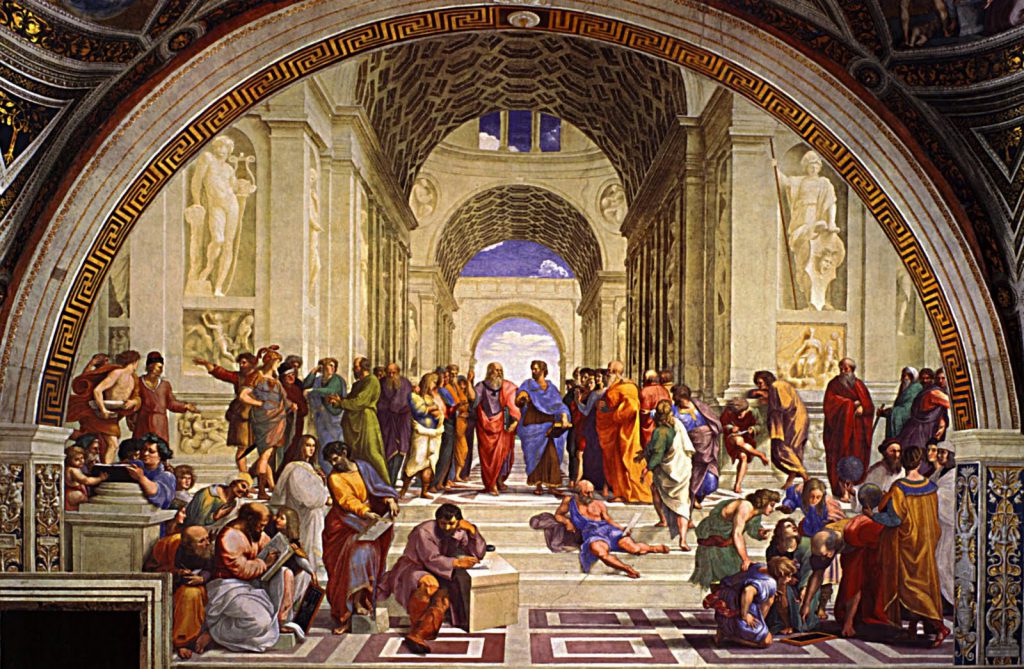
1) Ancient Greece is the place where the foundations of Western civilization were laid.
Ancient Greece is the place where the foundations of Western philosophy were laid with Socrates, Plato and Aristotle, literature with Homer and Hesiod, mathematics with Pythagoras and Euclid, history with Herodotus, drama with Sophocles, Euripides and Aristophanes, the Olympic Games and democracy.
The ideas and contributions of ancient mathematicians such as Archimedes, Euclid and Pyragoras in the field of mathematics still laid the foundations of many scientific disciplines today.
2) The ancient Greek alphabet is the ancestor of the Latin alphabet.
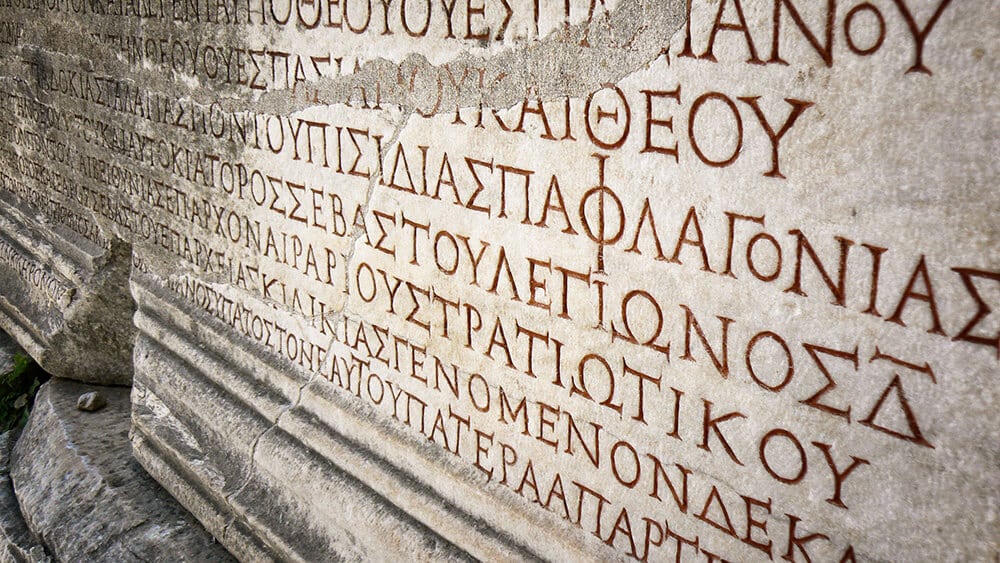
The ancient Greek alphabet originally derived from the Phoenician alphabet and began to be actively used in the 8th century BC. The ancient Greek alphabet is the ancestor of the Latin alphabet. In addition, the Ancient Greek alphabet is the first alphabet consisting of vowels.
Although the Ancient Greek alphabet is no longer used in Greek texts today, there are letters used for scientific notation in mathematics and engineering sciences. In this, we can easily say that the foundations of mathematics were laid in the Ancient Greek civilization.
3) The first known practice of democracy in world history took place in Ancient Greece.
Classical democracy, also called Athenian democracy, is a type of democracy that was first experienced in Ancient Greek city-states. Ancient Greek democracy, the first known example of democracy in ancient times, was the first known attempt at direct democracy. Hall, Cleisthenes and the Athenian Efialtes played a very important role in the development of Athenian democracy. When we say “democracy” here, we can think of an example of democracy, like today, where everyone has a say in the administration and in the elections of the administrators. However, of course, we cannot make this definition for ancient times. Laws were voted by the people, even if Athenian citizens could not elect their representatives. The “citizens” of this people we are talking about consisted only of free men.
Archaeologists found in Athens in the 1960s a broken pottery and 8500 ballot papers, the history of which dates back to 471 BC. Having discovered that the urn was deliberately broken, the archaeologists understood that on the found ballots the voters wrote the person they wanted to drive out of their city for ten years. James Sickinger, a historian at the University of Florida, uses the words “Negative popularity contest” for this application.
4) There was no single central state.
During ancient times, there was never a single state called Ancient Greece. The region that we can call Ancient Greece was ruled by dividing it into small city-states such as Athens, Sparta, Corinth and Olympia. These city-states had their own governments, laws and armies.
Ancient Greece experienced the biggest disadvantage of not having a centralized state. This disadvantage was that city-states fought each other throughout history. However, the city-states that fought each other from time to time also knew how to come together to defend Ancient Greece against an enemy greater than themselves, such as the Persian Empire.
In the 300s BC, only a single ruler was able to control the whole of Greece. That person was Alexander the Great of Macedon.
5) The foundations of the Olympic games were laid in Ancient Greece.
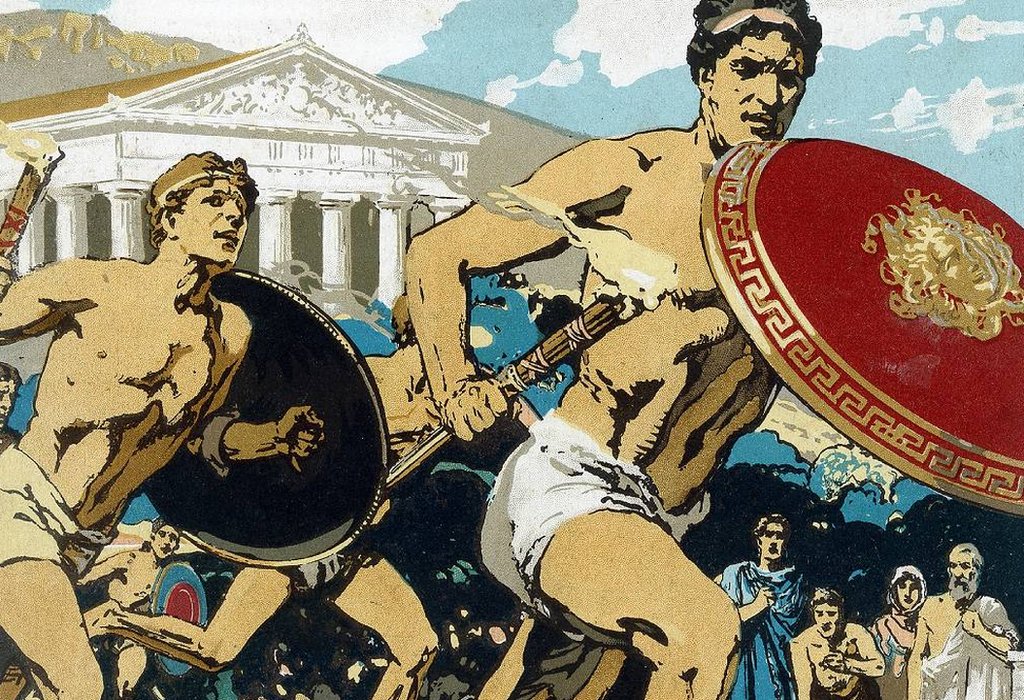
For the ancient Greeks, the most important event in their ancient calendar was the Olympic Games. The Ancient Olympic Games, which began in 776 BC and continued until 393 BC, were held every four years with the participation of about 50,000 people from all over Ancient Greece. The main purpose of these games, developed by Ancient Greece, was to honor Zeus.
There were no medals or rankings awarded to the winners at the end of the Olympics. Gold wreaths were given to the winners. The sole purpose of each of these winners was to honor their respective cities. Statues of the winners were also erected in Olympia. But for the Ancient Greeks, the greatest satisfaction of winning the Olympics was to be blessed by being touched by the gods.
During the Olympics, the Temple of Zeus was overflowing with visitors and gifts presented to Zeus. Inside the temple was a large gold and ivory statue of Zeus. On the third day of the Games, 100 oxen were sacrificed and burned at the Altar of Zeus.
6) The vast majority of the ancient Greek population were slaves.
We mentioned that the first examples of early democracy were seen in Ancient Greece. But this example of democracy was far less complex and far less inclusive than the democracies we understand today. We can observe another reflection of this situation with the fact that slavery was quite common in Ancient Greece. The slave class, consisting of 40% to 80% of the population, worked alongside wealthy people in housework, in the fields, in the markets, in the mines and on the ships. Looking at the fields of study, it would not be wrong to say that the slave class played a critical role in the creation of the wealth of Ancient Greece.
7) Leisure time comes into our lives as “Skhole”, “School”.
We have already mentioned that in ancient Greece, the majority of the population was the productive power of Greece and was used as a labor force in many different business areas. In ancient Greece, due to the fact that the population of slaves was quite high compared to the general population, because people in freedom and prosperity had a lot of free time, these wealthy people spent their time thinking about philosophy and management. These people are considered to be respected and true compatriots in Ancient Greece.
For people who get this free time thanks to slaves, school has emerged as a means of spending time, and the concept of getting an education has come to light. English Greek word “school”, which means school, also came from the Greek word “skhole”, which means “free time”.
8) Effects of Ancient Greek Mythology
Ancient Greek mythology is a mythology that deeply influences the mythology of the Near East and Europe, and is the complete basis of Roman mythology. According to ancient Greek mythology, there are twelve gods (four women, eight men) living on Mount Olympus. The starting point of Greek mythology begins with the fact that these Olympian Gods fought with the Titans. The Gods win this battle, and the Titans are punished. The war ends with the destruction of some Titans, the expulsion of some of them to Tartatus (Underground), and the punishment of Atlas for carrying the earth. After their victory, the ancient Greek Gods continue to rule the world from Mount Olympus.
In ancient Greek mythology, there are twelve Gods in total, and this number twelve never changes. For example, when Dionysus, the God of Wine, was included in the Pantheon, the Goddess of the Family, Hestia, had to leave Olympus.
Events in Greek mythology, contrary to what one might expect, are full of more human errors and their consequences, not the majority of divinely incredible events. For this reason, it is a highly empathetic, storytelling mythology.
9) In ancient Greece, boys and girls were not equal.
In ancient Greece, boys began their education at the age of six to seven, while girls who could get an education in both cities were considered lucky. Unfortunately, the education life of children in Ancient Greece was in an intense connection with their genders. Boys who were prepared for life were sometimes educated in the public sphere, and sometimes they were sent to schools where they would face physical and mental difficulties. In addition, girls were sometimes lucky enough to receive education in their already limited living spaces. The education of girls, who were fortunate enough to receive an education, was mostly carried out haphazardly at home.
The education system, which Isocrates, one of the thinkers of the period, called paideia, was an education system designed for boys to be purified from the worst features of being human and to reach the highest moral level. The purpose of this training was to train men ready to bear the political and military burdens of society. Again, girls were not allowed anywhere in this education system.
Of course, there were women who were educated and successful by breaking through this discrimination against girls. The lyric poet Sappho, who lives on the island of Lesbos, is one such example.
10) Sparta was raising warriors, Athens was raising citizens.
In Sparta and Athens, one of the most important city-states of Ancient Greece, there were different perspectives towards the education of children. Children began education at the age of six to seven in both city-states. However, the content of the trainings provided was quite different from each other. While the education given in Athens was aimed at raising good citizens, statesmen and thinkers, things were different in Sparta. In Sparta, boys began to receive intensive military training from the age of seven, during which they would acquire survival skills. Spartan children, who learned how to survive in cold, hunger and poverty, were also thrown into great mental struggles.
Despite strict sexist segregation in Athens, Spartan girls were able to train together with boys in athletics. These girls could not only train but also enter races.
11) Slaves could be bought for salt.
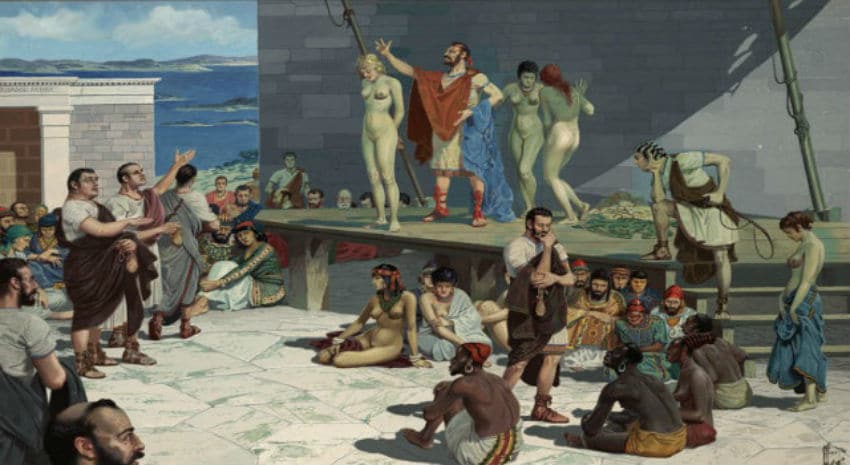
In ancient Greece, slaves could be bought and sold for salt. Even an idiom arose after the underperforming slaves: “Salt can’t make up for it.” Salt was as valuable as gold for many societies due to the difficulty of finding ready-to-use salt in these times.
We have mentioned that slavery was quite common in ancient Greek society. However, this was not so unusual in ancient times. Slavery was common in many societies. While Aristotle saw slavery as a natural and necessary class, ideas condemning slavery began to take shape with the Stoics.
12) The ancient Greeks did not call their country Greece.
The Ancient Greeks, who lived for thousands of years in the geography we call Ancient Greece today, did not call the geography they lived in Greece. The official name of the country of the ancient Greeks was the Hellenic Republic. The ancient Greeks, on the other hand, named their geography and nation as Hellas or Helleda. The word Greece, which is used in English today and means Greece, comes from the Latin word Graecia and its meaning is known as “the land of the Greeks”.
13) The word “Idiot” originates from Ancient Greece.
The word “idios” used in ancient Greek corresponds to the word “idiot” used in English today. This word was used to mean non-politicians in Ancient Greek times. In front of the non-politicians, who were seen as “idios”, there were valuable citizens. We can explain the meaning of the word “idios” a little more at this point.
The word “idios” used to mean “self”. In other words, it was used to describe selfish people who ignore political discussions, stay away from politics, do not participate in decision-making processes, and do not participate in politics. He represented those who were cut off from the herd, caring only for themselves.
As we can see from the use of this word, politics and the state were very serious matters in Ancient Greece and it was very, very important for every citizen to have a say in the administration. That’s why in Ancient Greece being “stupid” was considered a very serious flaw. People who left their lives to the decisions of others were considered weak-willed.
14) Before the Olympic Games, fighting was forbidden.
A month before the start date of the ancient Olympic Games, no fighting, war or outrage was accepted and punished. The sole purpose before the Olympics was to ensure that the spectators from different parts of Ancient Greece could reach the games safely. Respecting the religious significance of the Games for the Ancient Greek people was essential. During these periods, truce or ekecheiria was applied all over Greece.
These bans, which were started a month before the Olympics in the first period of the Olympics, were increased up to three months in the following centuries. In this period, even carrying weapons was prohibited. It was out of the question to put any obstacles in front of people who wanted to go to the games.
15) Getting drunk was not welcome in ancient Greece.
Although wine was an important player in Ancient Greek culture, it was considered arrogance for mortals to get drunk. For this reason, the Ancient Greeks drank wine by adding water to their wine. It was believed that only Dionysus, the god of wine, could drink wine without water and not get drunk.
If any mortal did not add water to their wine, there was a danger that this person would resort to violence or lose their minds. Here, the Ancient Greeks were able to drink a lot of wine without getting drunk by adding water to their wine. In winter, they would add snow instead of water to their wine to avoid wasting their water. It was very important that the water/wine ratio was half.
16) Stone was used for toilet paper in Ancient Greece.
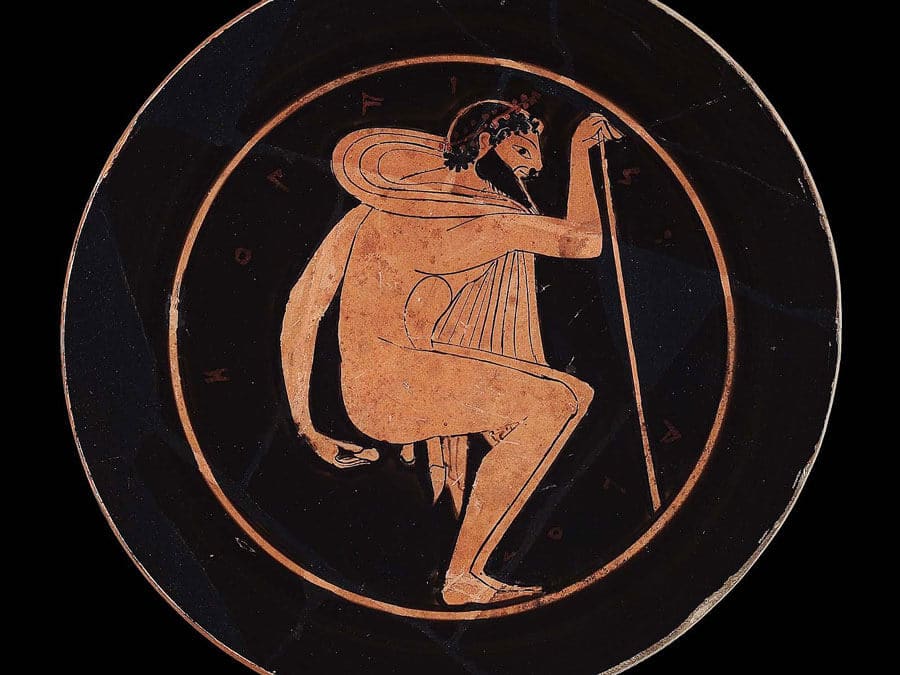
As interesting as it may sound when you first hear it, toilet paper was not yet available in Ancient Greece and in many civilizations of the ancient age. The list of objects that different people from different cultures of the world used for the same purpose before the invention of toilet paper can be really long. Objects such as tree leaves, corn, coconut shells, wool, sponges attached to sticks were used instead of toilet paper.
The ancient Greeks are one of those civilizations who found an interesting solution. Stone, pebbles or ceramic pieces were used before the invention of toilet paper in ancient Greece.
17) In ancient Greece, men used beards as a sign of status.
In ancient Greece, men’s beards were considered a sign of prestige for them. It would not be wrong to say that there was a competition among Ancient Greek men in finding successful hairdressers for their beards, which are extremely important to care for. Their beards were a symbol of their wisdom and masculinity. So much so that the Spartans were punished by shaving some of their cowards’ beards. This punishment may seem very simple to us, but it was a very severe punishment for the Ancient Age men who associated their beards with their dignity.
In ancient Greece, hair was considered as important as beards. Hair is for them the most valuable thing that the human body can produce. The most important reason why the ancient Greeks were obsessed with their hair was due to Ancient Greek mythology. The ancient Greeks believed that their hair gave them strength during their journey to the Underworld after their death. Although it did not overlap with this understanding, hair loss was also associated with wisdom. This understanding stands out as the main reason why many statues depicting philosophers are bald.
18) The ancient Greeks had a lot of superstitions.
The ancient Greeks were not only very wise, but also very superstitious. So much so that these superstitions of the Ancient Greeks were an important determinant of their daily lives. Some days of each month were considered unlucky days. These days the Ancient Greeks avoided marriage or doing important work. Or the Ancient Greeks, who prayed to their God before crossing a river, did so to avoid bad luck.
The concept of “evil eye” is still an important concept in Greece and continues as one of the important superstitions in Greek culture as it is in Turkish culture. Just like in our culture, the Greeks also use evil eye beads to ward off the evil eye.
19) Ancient Greek men used sexual performance enhancing mixtures.

In ancient Greece, it was quite normal for men to use sexual performance enhancing mixtures. Of course, they did not have solutions like today’s complex drugs, but they found a way to increase their sexual performance naturally. The natural formula prepared from a mixture of honey and pepper was one of the most common and effective formulations. Ancient Greek men used to rub this mixture on their penis before sexual intercourse.
20) Pregnancy test was done in ancient Greece.
Pregnancy tests were not a solution that the modern world gave people. Since ancient times, women in different civilizations could use different methods to find out if they were pregnant. Pregnancy tests in Ancient Greece were particularly interesting. Women with suspected pregnancy would put a clove of garlic in their vagina before going to sleep at night. If the woman’s mouth smelled of garlic the next morning, the pregnancy test would mean negative. This test, which is not very reliable, was widely used.
Another method used by ancient Greek women as a pregnancy test was that the woman with suspected pregnancy drank water with honey before going to bed at night. If the woman experienced bloating and cramps during the night, the test would be positive. This method was developed by the great ancient physician Hippocrates.
This post is also available in: Türkçe

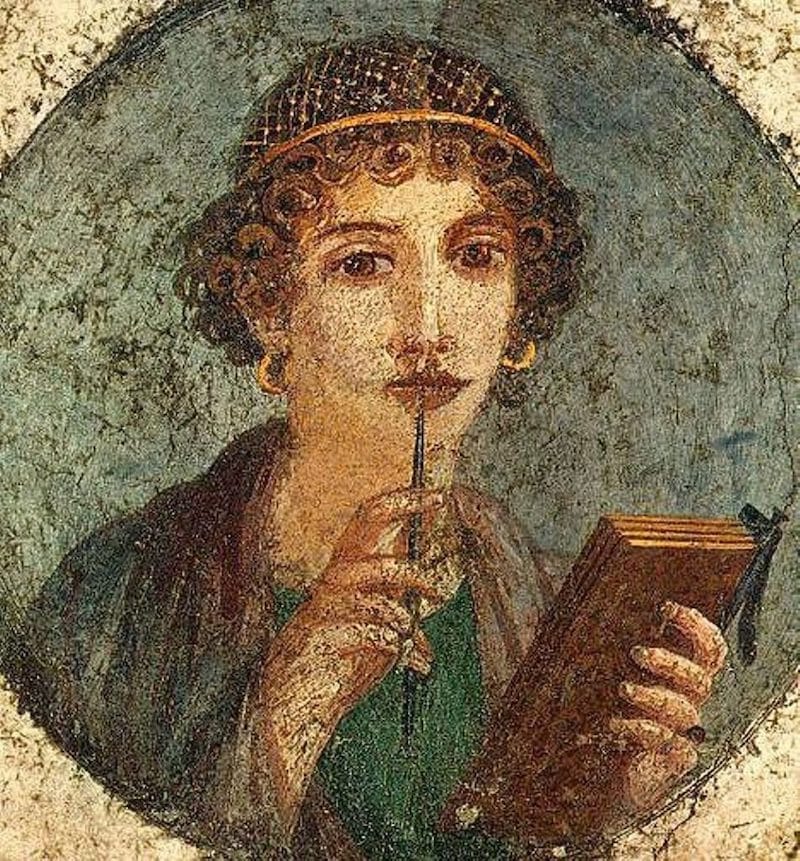





Yorumlar (0) Add Comment